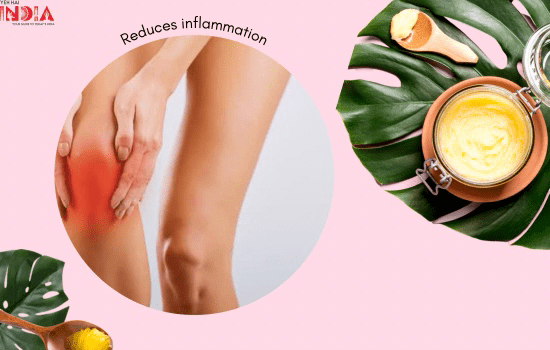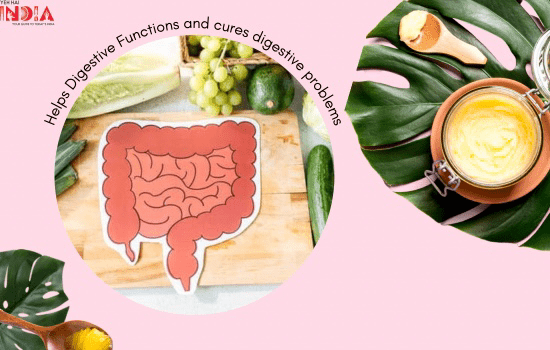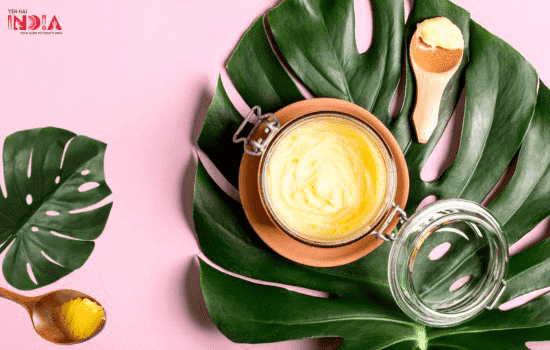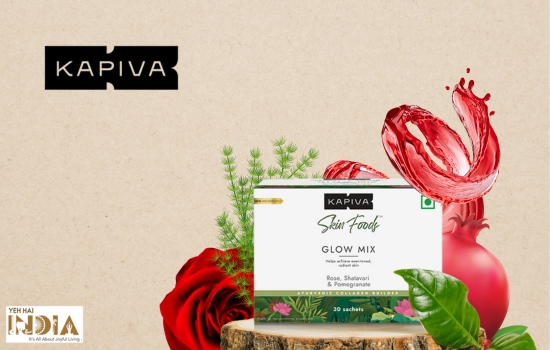Ghee is one of the most famous foods, with incredible health benefits and healing properties. In India, Ghee is a kitchen staple that we never get enough of. This article is on the pros vs cons in the battle of ghee vs oil going on forever in our kitchens.
Ghee, or clarified butter made from cow’s or buffalo’s milk, is rich in omega-3 properties, vitamin A, and healthy cholesterol. Beyond our regular kitchens, ghee also finds a coveted place in beauty and hair care rituals.
Here is everything you need to know about ghee and the benefits you can derive from it!
1. Manage weight

A consistent and normal intake of ghee helps you manage weight in the long term. Other than healthy calories and fats, ghee contains a bundle of fat-soluble vitamins like vitamin A, vitamin E, and vitamin K.
These fat-soluble vitamins boost the metabolism, which further aids weight loss, and also play a key role in balancing body hormones. It also helps maintain healthy cholesterol.
Additionally, butyric acid, found in ghee, is a short-chain fatty acid that reduces inflammation, indirectly reducing the chances of weight gain that usually happens due to inflammation.
Ghee consumption is not directly related to weight loss; therefore, careful consideration is important when deciding its consumption.
Recommended Story – Cold pressed oils: Are they healthy and would they replace cooking oils?
2. Reduces inflammation

Studies point out that regular consumption of ghee helps with inflammation. Ghee has butyric acid and vitamin E, which are rich in antioxidants and have high anti-inflammatory properties.
These help in managing and preventing various diseases, including gut inflammation and certain kinds of cancer. Ghee can also increase the amount of good cholesterol that can aid the functions of the heart.
3. Helps Digestive Functions

Ghee is a good source of short-chain fatty acid butyrate, which maintains digestive health and also fights against inflammation. Some medical evidence also suggests that ghee can be helpful for those suffering from Irritable Bowel Syndrome (IBS).
Ghee consumption is strongly related to a healthy gut. In olden times, ancestors used to have a spoonful of pure ghee before every meal. This ghee lines the gut and reduces the chances of ulcers and cancer.
A spoonful of ghee at night can also aid your digestion, heal your tract, and relieve constipation.
4. Good for your heart

Contrary to popular belief, ghee does not possess excessive cholesterol levels. It is a safer bet to invest in for your heart health when compared to any refined oil.
The fats present in ghee are not associated with heart disease in the way that long-chain fatty acids are. They are used directly as energy by the body and not stored as fat.
Hence, if consumed daily, this can lower bad cholesterol and increase the amount of good cholesterol in the body. The amount of good cholesterol has a direct impact on your cardiac health.
5. Boosts your immunity

Immunity building has been one of the key challenges to human health in the wake of COVID-19. A spoonful of ghee can resolve this problem for you.
Ghee is loaded with antioxidants, which boost the immune system by increasing the body’s ability to absorb essential nutrients. When your body effectively absorbs nutrients, your chance of falling ill naturally reduces.
Ghee also contains lauric acid, which is a potent antimicrobial and antifungal substance. In north India, nursing mothers are often given traditional sweets like laddoos that are loaded with ghee since they are high in energy-boosting properties.
6. Manages your Glycemic Index/ Blood Sugar

Indians have a standard practice of spreading ghee on roti and paratha. It is said that such intake can reduce the glycemic index of the food we eat by certain levels, due to its high amount of fat.
Teaming your food with ghee thus increases the digestibility of the food you eat. In simple terms, the glycemic index is the measure of how quickly any food we consume causes our blood sugar to rise.
In this context, ghee can help bring down the glycemic levels of your food consumption and help you manage sugar levels.
Recommended Story – 15 Best Foods for Healthy, Clear, and Glowing Skin
7. Builds bone health

The three main vitamins in ghee, vitamins A, E, and K2, are responsible for healthy bones. Vitamin K helps in calcium absorption by the body.
This also helps you fight problems like tooth decay and prevent atherosclerosis.
And that’s not all! There are more benefits to consuming ghee, such as:
- Relieves constipation.
- Reduces gut inflammation.
- Inhibits cancer cell growth.
- Supports hormone production.
- Is lactose-free
Here’s a table on Ghee vs Oil based on the 7 aspects discussed above.
Aspects Ghee Oil Nutritional Content Rich in vitamins (A, E, K), butyric acid Varied types, some with healthy fats (e.g. olive oil), some less nutritious (e.g. palm oil) Impact on Weight Can aid weight management and hormonal balance Varies based on type, some may contribute to weight gain Heart Health Contains fats beneficial for heart health Some oils may contain harmful trans fats or excessive saturated fats Digestive Health Supports digestion and gut health It may not have the same benefits for digestion Immune System Boosts immunity with antioxidants and acids Limited immune-boosting properties Blood Sugar Can help manage glycemic index and sugar levels May vary in impact on blood sugar levels Bone Health Contains vitamins important for bone health Typically lacks vitamins supporting bone health
Ghee vs Oil? Which is a better choice?
Look at the following perspectives for better clarity.
Fat Content
- Ghee is a high-fat food. It contains almost 80% fat.
- Oils have varied fat content depending on their source. It might be even less than 10% in some oils.
Energy value
- Both ghee and oil are high in calories.
- Ghee provides 112 calories per tablespoon, and oil usually provides around 120 calories (olive oil).
Smoke point
- Ghee has a higher smoke point than oils.
- Can be used at high temperatures without altering properties and remains safe for cooking purposes.
Flavour
- Oil has a neutral flavour, whereas ghee has a typical rich flavour, adding a great texture to food.
Nutritional value
- Ghee contains a higher amount of vitamins and minerals than oil, especially fat-soluble vitamins like Vitamin A, E, and K.
Health Benefits
- A lot of research has come up with scientific evidence contributing to multiple benefits from optimum consumption of ghee.
Price
- Naturally produced ghee, popularly known as desi ghee, is more expensive than oil.
The ideal choice depends on individual preferences and tastes. Ghee offers high-fat, high-calorie dishes with rich flavour and health benefits, while oil offers lower-fat, lower-calorie dishes with neutral flavours.
Here’s a table with more fine points on the Ghee vs Oil battle to help you choose better.
Aspect Ghee Oil Fat content Ghee is a high-fat food, with about 80% fat. Oils vary in their fat content, but most are about 10% fat or less. Calorie content Ghee is also a high-calorie food, with about 119 calories per tablespoon. Oils are also high in calories, with about 120 calories per tablespoon. Smoke point Ghee has a high smoke point of about 485 degrees Fahrenheit. This means that it can be heated to a high temperature without burning. Oils have a lower smoke point than ghee, with most oils smoking at around 350 degrees Fahrenheit. Flavour Ghee has a rich, nutty flavour that can add depth and complexity to dishes. Oils have a more neutral flavour, which makes them a good choice for cooking dishes in that you want to highlight the flavours of the other ingredients. Nutritional value Ghee is a good source of fat-soluble vitamins, including vitamins A, D, E, and K. Oils are not a good source of vitamins, but they do contain some essential fatty acids. Health benefits Ghee has been shown to have some health benefits, such as reducing inflammation and improving heart health. Oils have not been shown to have the same health benefits as ghee. Cost Ghee is more expensive than oil. Oil is less expensive than ghee.
So what are you waiting for? Head out to buy your bottle of Ghee!










